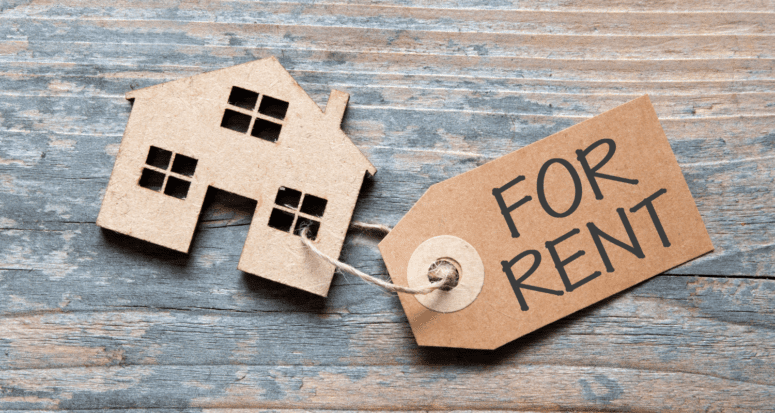How to Make Money Renting Houses: Advice From Experienced Investors
- Published on
- 8 min read
-
 Summer Rylander Contributing AuthorClose
Summer Rylander Contributing AuthorClose Summer Rylander Contributing Author
Summer Rylander Contributing AuthorSummer Rylander is a freelance writer and editor with an abundant background in real estate. A former residential real estate agent in the Columbia, SC area and sales administrator at a commercial real estate firm, she now uses this experience to help guide readers. Summer currently resides in Nuremberg, Germany, where she fulfills her passions of food and travel and avoids her dislikes of mayonnaise and being trapped in an office.
DISCLAIMER: This article is meant for educational purposes only and is not intended to be construed as financial, tax, or legal advice. HomeLight always encourages you to reach out to an advisor regarding your own situation.
If you’re looking to make money with real estate, renting houses may sound like an easy job. But is it really?
There’s more to it than simply buying a few homes in desirable neighborhoods and putting a “for rent” sign in each window — if you don’t know what you’re doing, you could lose a lot of money.
To go beyond a Google search and learn more about the realities of life as a landlord, we spoke with Jennifer Seeno Tucker, a top real estate agent and rental investor in Elmont, New York. We also touched base with a few other rental investors around the country who were eager to share their tips on what it really takes to make money renting houses.
Let’s start from the beginning …

Should I live in my first investment property before renting it out?
Rather than selling when it’s time to upgrade their own home, many investors choose to keep their current house and start using it as a source of income.
One big advantage is a complete familiarity with the property — you’ll already know the ins and outs of its condition, maintenance history, and any of those little “jiggle the lock up and to the left” quirks.
And, while we’ll get more into property management later on, there’s something to be said for the hands-on nature of renting out a home you’re familiar enough with to potentially manage yourself.
“I’m a big believer in knowing your business inside and out, and that means making mistakes initially,” says Tucker. “I like to go deep and get invested; I’m really hands-on with the all the good, the bad, and the ugly.”
This being said, is it a must to live in your first investment property? Definitely not. If you have plans to eventually own multiple rental homes, trying to personally live in each one before finding a tenant would quickly become impractical.
How should I research home prices and rent prices?
Becoming familiar with your local market — at least in the vicinity of your rental home(s) — is crucial to effectively making money renting houses. Thus, it should come as no surprise that your best bet for a deep dive into learning about home pricing is to work with an experienced real estate professional.
An agent, especially one who also dabbles in rentals themselves, can help you find properties that have great potential as investments and help you determine a fair-market rental rate.
Their expert advice can supplement your own findings through internet research and personal experience, but it’s equally important not to fixate purely on purchase price and your monthly mortgage costs in relation to potential rents.
“Far too many novice investors just look at the rent and the mortgage payment, but non-mortgage expenses — repairs and maintenance, vacancy rate, property management fees, property taxes, landlord insurance, and so on — typically come to around half of the rent payment,” says G. Brian Davis, cofounder of SparkRental. “New investors ignore or underestimate these costs, then wonder why they lose money every year on their rentals.”
How should I research neighborhoods?
It should come as no surprise that a home in a desirable location will rent faster and more reliably than one with little to offer in the way of local amenities.
Access to shopping, dining, entertainment, and transit (which could mean anything from a bus stop to an interstate on-ramp, depending on your locale) tend to be important to prospective tenants. Those with children will surely also be interested in school districts and safety.
There’s no such thing as one-house-fits-all, but you can give yourself a leg up on your rental business by choosing homes in places where people want to live.
“If you’re planning to invest in this kind of business, you must always consider buying property located in a healthy community,” advises Charles McMillan, founder of Stand With Main Street, noting that most would-be renters are conducting their own research on their potential neighborhood. Ensuring that your rental property is in a favorable location helps to reduce the chances of your property sitting vacant.
“This is one of my, ‘what I wish I would have known’ experiences from my first investment,” McMillian says.
Again, no matter how familiar you are with your city, your agent can be a big help in the discovery process when searching for an ideal rental property.
“We can gather all the information we want on the internet, but it’s a local real estate agent who really understands the market,” notes Tucker.
What expenses do first-timers tend to forget?
In the midst of contemplating fun legalities such as property taxes (the rates for which are often higher than those on your primary residence), insurance (there’s a difference between homeowner’s and landlord insurance), and property management fees (usually 10% of your monthly rental rate), new rental investors may not be thinking about more nuanced expenses.
“The one thing that kind of tripped me up in the beginning was the landscaping and snow removal,” admits Tucker. “We had a really bad winter here, and I didn’t realize what kind of expense that was. I’d budgeted $X, and the cost for snow removal turned out to be ten-$X. That was one of the things I didn’t expect.”
Ryne Lambert, cofounder of Sell My House In Wisconsin, advises rental investors to budget early for big-ticket items like roofs, windows, and heating-and-cooling equipment.
“These items can put you in a bind if you don’t have adequate cash reserves saved up,” he says. “Be sure to include budgeting for capital expenditures in your analysis of a property — in addition to repairs and maintenance.”
This means that even if you’re buying a home in near-perfect, move-in ready condition in the most desirable neighborhood in town, you should still be thinking long-term as you put the numbers together. That new HVAC won’t always be new, after all.

Can we talk more about maintenance and who’s responsible?
While your lease agreement can make certain stipulations about who is responsible for what around the home, maintenance and upkeep can be a major grey area.
Some instances are fairly cut-and-dried: If the roof starts leaking, if the dishwasher stops working, or if the garage door gets stuck halfway up, you can bet that your tenant will be picking up the phone.
Other matters aren’t as clear.
If your tenant is the one on the hook for mowing the lawn at regular intervals, for example, are you going to provide the mower? If it’s gas-powered, who pays for the gasoline? What are the repercussions if your tenant doesn’t mow according to schedule?
This is where it can be helpful to work with a property management company (let them field the Saturday-afternoon call asking about who replaces the light bulb in the downstairs bathroom), but if you’re going at it on your own, it’s a good idea to have an expert at the ready.
“One thing that’s really helpful is having a handyman who is kind of on-call,” says Tucker.
“Someone who can go over [to the house] within maybe 48 hours and fix something for a tenant that might not be working. I’d say that has been my greatest asset so far.”
OK, so what about rental home upgrades?
Buying a fixer-upper can be a great way to score a rental property at a great price — as long as you know what you’re getting into with necessary renovations.
Tenants generally expect to move into a home that is clean and properly functioning. While everyone’s preferences are different, it’s hard to go wrong with prioritizing upgrades to the kitchen, bathrooms, and flooring.
For her rental properties, Tucker prefers to buy homes that aren’t completely run-down, but she’s fine with making some updates.
“I like a house with the majors — windows, roofing, heating — in place and in working condition, but maybe it just needs a good amount of updating. I can come in a little lower [on the purchase price], and depending on the terms of the financing and how long it’ll take me to close, I can really get a good deal,” says Tucker.
If you do choose to take on a project home as your first rental, whether you go the DIY route or hire professional contractors will depend on your skill set and budget. In either case, you’ll want to put on your accountant hat and track every penny.
“You should budget for these remodels and track all the costs, invoices, receipts, and so on,” says John Bodrozic, cofounder of HomeZada. “This will be helpful for insurance purposes, as well as for tax and future resale purposes.”
I’m ready to rent. Should I hire a property manager?
While some rental investors (like Tucker) enjoy a hands-on approach, many do prefer to use the services of a property management company.
As mentioned earlier, management companies typically keep 10% of the monthly fee, but the day-to-day responsibility is removed from your plate. Property managers also handle the major aspects of landlord tasks, such as marketing your home, vetting your tenants, and carrying out all of the contract-signing, security-deposit-collecting, property-walkthroughs, and so on without you having to do anything other than agree to initial terms.
When a tenant has a maintenance issue, they call the property manager. There is usually an agreed-upon monetary amount to which the manager can act without involving you — which means you won’t be bothered with approval requests for a $50 toilet repair in the middle of the workday.
“I’m a firm believer in doing it right the first time,” says Lambert. “If you plan on having multiple rental properties, run your portfolio like a business, and hire a good property manager — starting with your very first rental.”
Lambert notes that a reputable property management company maximizes value by finding qualified tenants more quickly than you likely can on your own. Furthermore, they often have established relationships with contractors, which can mean repair savings that are passed on to you as their client.
Conversely, if you’re familiar with the real estate industry or a handy with a hammer yourself — or, if you want full immersion into the property rental business — it’s absolutely doable to manage your rental(s) yourself.
“From my experience, [managing yourself] is the only way to truly learn the business; and that’s still critical if you decide to take a more hands-off approach and work with a property manager in the future,” says Andy Madden, general partner of McIntosh Management.
Madden recommends breaking your management strategy into three categories: advertising, maintenance, and bookkeeping.
We’ve already talked about the importance of keeping detailed records and navigating maintenance, and with countless platforms available to list your property for rent, as long as you can take great photos and write up a snappy listing, you can feasibly put the home on the market yourself, too.
Remember, if you manage your own rental for a year and decide it’s not the project for you, you can always choose to outsource to a property management company!

I’ll try self-managing for now. How should I screen my tenants?
As exciting as it may be to receive an email or phone call from a prospective tenant, it’s important to thoroughly understand this person — in accordance with the Fair Housing Act — before you let them move into your home.
“At this time I’m doing the screening myself,” says Tucker. “It’s a full application based upon where [the potential tenant] lives now, how many people are moving in, and what their resources are to pay for the unit. I take an application for all adults who are moving in, whether they’re married or not.”
Tucker asks for a full credit history, proof of funds, and references. If everything checks out with the paperwork, she invites the applicant for a meet-and-greet so both parties have a chance to size up the other and see if it’s a good fit. From there, it’s time to sign the lease, collect the security deposit, and inspect the property together before handing over the keys.
Mike Laurenzi, owner of Take Flight Home Buyers, made his foray into renting houses by purchasing a quadplex with his wife. All four units were already occupied by tenants, and while this may sound like an ideal scenario for a rental investor, it can be tricky when someone else has done the screening.
“The No. 1 tip I can give to anybody looking to rent out a property is to do a full and proper screening of applicants,” says Laurenzi. He adds that “99% of all other problems will be solved ahead of time if you get the right tenant.”
He suggests a thorough background check with parameters for what you will and won’t accept. “Minor drug possession charge 10 years ago? Not a big deal. Assault, theft, arson, murder, sex offender chargers? Dealbreaker.”
Laurenzi also advises vigilance with checking references and employment history. “Don’t just call the numbers they give you for their work; look up the company and make sure you call that number. Sometimes they’ll give you a friend’s number who will pretend to be their current or former boss.”
Finally, don’t forget to trust your gut. If you meet a potential tenant and something just doesn’t feel right, move on to the next application.
How should I grow my rental portfolio?
Now that you’ve learned how to research neighborhoods, you’ve determined how you’d like to manage your properties, and your first rental is equipped with a great tenant, you might be wondering how you can repeat the process.
The sky’s the limit, as they say! Or, in this case, perhaps your budget is your limit; but as your cash flow increases, so can your buying power. As with any growing business, you’re well-advised to create a business plan for your rental investments.
“I think everything is a learning process,” says Tucker. “I’m never an over-analyzer with anything, so I just jumped in head-first. I’m willing to make mistakes along the way, but having a business plan as an investor has really helped me achieve my goals.”
Continuing to buy properties in your area is undoubtedly the easiest option due to access, but as you gain more experience and sniff out opportunities in other locales, you may decide to add a distant home or two to your portfolio. In these long-distance cases, you’ll likely want to work with a property management company (it’s tough to be an on-call landlord from afar) and establish a relationship with a real estate agent in the area.
What about unplanned vacancies? How much money do I really need to rent houses?
If you’ve purchased a house in a prime location, you’ll ideally have no trouble keeping it occupied — but understand that vacancies can happen.
“It’s the risk that we take as landlords,” says Tucker. “I’ve been fortunate enough that [my houses] have never been vacant for more than three months, but there’s always a non-occupancy percentage that should be included in your business plan.”
If you do run into trouble renting out your house to a conventional long-term tenant, you could try short-term renting through platforms like Airbnb or VRBO to fill the gaps.
As far as how much money you’ll need to get started with renting houses? This is an unhelpful answer, but it really depends on local market conditions and how much money you have available, whether through cash or your ability to secure financing.
Don’t hesitate to talk through your options with a financial advisor or mortgage broker.

Any last tips?
Remember that making money renting houses is a long game. You’re not going to hit peak wealth overnight, but by making smart choices, keeping detailed records, and working with trusted experts, renting houses is a very viable option for reaching your financial goals.
Header Image Source: (Pixelbliss / Shutterstock)
